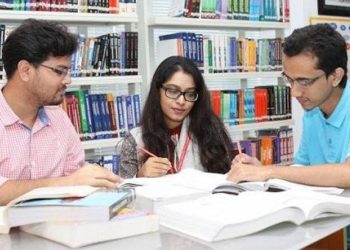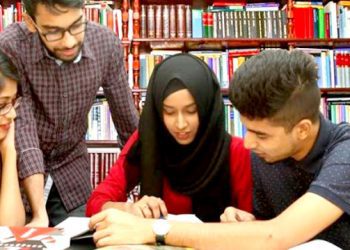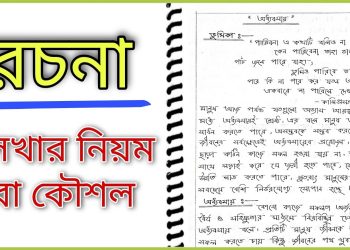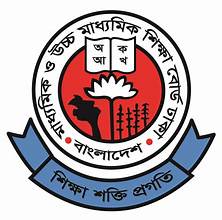Civil Service:
Civil service of a country generally includes all permanent functionaries of
the
Government, which distinctly excludes defence service, although some civil
servants
work in the defence ministry and its various departments. A member of the civil
Service is not a holder of political or judicial office.
The civil servants of a state are collectively called civil service.
According to Rai and Singh, civil service means a professional body of neutral experts in the administration who are dedicated to serve without regard to its own gains or without reference to party political views or class interests.
According to Finer, civil service is a professional body of officials permanent, paid and skilled.
Policy formulation is the function of cabinet/ministry, but policy implementation, the main aspect of development is the function of the civil servants.
Although policy formulation is the jurisdiction of cabinet/ministry; it depends largely on the civil servants for the data of policy formulation.
According to a British writer, in Ninety nine cases out of one hundred, ministers simply accept the views of civil servants, and sign their names on the dotted line.
So, a state may run without ministers, but it cannot run a day without civil servants. Here lies the importance of recruiting the best talents for the civil service with a view to make the public sector a relevant, dynamic, and powerful force of change.
Civil Service in Bangladesh:
The BCS is structured vertically into four classes, namely class-I, class-II, class-III and class-IV based on such variables as levels of responsibility, educational qualification and pay range (Ahmed and Khan, 1990:29).
Class-I being the professional or officer class and others performing a variety of supporting functions. All class-I and part of class-II officers are treated as ‘gazette’ officers, the rest are considered as ‘non – gazette’ officers .
The gazetted officers are normally invested with high powers and responsibilities and consequently enjoy greater privileges than the non gazetted employees.
Cadre Service:
Cadre service is the distinct functional sub division of the government bureaucracy. Cadre services are those services, which are constructed under law with a number of positions or structure and recruitment and promotion rules.
Non cadre services are mostly based on position, with no definite structure of mobility either horizontally or vertically.
A cadre system entails organization of civil servants into semi – functional/ occupational groups.
At present there are 26 cadres in BCS. Some cadres are general and some are professional/technical.
A very small number of civil servants belong to the cadre service.
Selection stages of Bangladesh Civil Services Examination System:
The Bangladesh Public Service Commission (BPSC) makes selection of higher categories of civil servants through competitive examinations on the basis of the Bangladesh Civil Service (Age Qualification and Examination for Direct Recruitment) Rules-2014.
The examination is called Bangladesh Civil Service (BCS) Examination and the recruited officers are called BCS Cadres.
Collecting Requisition:
Every year, Bangladesh Public Service Commission (BPSC) requests the
Ministry of Public Administration to send Cadre wise vacancy list. After
getting vacancy lists from the ministries, the Ministry of Public
Administration (MoPA) Submits a list of job vacancies of different Cadres to
the Bangladesh Public Service Commission (BPSC).
Advertisement:
Receiving vacancy list from the Ministry of Public Administration (MoPA) on the basis of the BCS (Age, Qualification and Examination) Rules-2014, Bangladesh Public Service Commission (BPSC) floats an advertisement through its website and national dailies mentioning cadre wise educational qualification, exam fees, tentative date of examination, subjects of written examination for a particular cadre, age and other terms and conditions.
A time span around 4 (four) weeks is given to the candidates for online registration.
Educational Qualification:
According to the BCS (Age, Qualification and Examination) Rules-2014,
educational qualification for general cadres is-
1. A Master’s degree from any recognized university or a degree that requires at least 4 (four) years of education after passing Higher Secondary Certificate (H.S.C) Examination or equivalent. Provided that a candidate having more than one third division/class in his academic career shall not be eligible.
2. If a candidate appeared at any examination that is threshold level for BCS examination, he/she will be able to apply, provided that all written examination would have been completed by the deadline of submitting application.
3. All appeared candidates have to submit their original or provisional
certificates as education qualification from any university to the commission
before the viva-voce.
Educational qualification for technical/ professional cadre depends on respective cadres. Generally a graduation degree is needed for being a candidate in professional/technical cadre.
Age Limits:
1. If the age limit of the candidates is below 21 (Twenty one) and above 30 (Thirty) on the first date of the month when the advertisement is circulated by the commission he/she will not be considered as worthy candidates of BCS examination.
2. The maximum age limit of freedom fighters and their sons daughters, disable candidate and BCS (Health) cadre candidates is 32 (Thirty two).
3. In case of BCS (General Education), BCS (Technical Education) and BCS (Health) the maximum age limit of tribal candidates is 32 (Thirty two) and in others cases, the age limit is 30 (Thirty).
4. The date of birth referred to their SSC certificates or other authorities approved by the commission is evaluated as the proof of their age.
In case of the candidates having O ‘Level’ and A `level’ the date of birth in their certificates issued by competent authority is considered as their proof.
Application Form:
Candidates fill up their application and submit it through online of Commissions website within the schedule following the process of the Commission for taking part in examination.
No application will be accepted after deadline. All candidates except disable and tribal have to pay TK. 700 as examination fee and the exam fee for disable and ethnic minority group candidate is Tk. 100.
Preliminary Test:
Only the worthy candidates will be able to download their admit card automatically after completing their application and paying their particular fees.
No candidates take part their examination without admit card.
According to the BCS (Age, Qualification and Examination for Direct
Recruitment) Rules, 2014 a two hours preliminary test (MCQ) of 200 (two
hundred) marks is held on different branches of knowledge for evaluating the
competency of the candidates.
Provision for deduction of 50% marks is kept for each wrong answer given in the
preliminary MCQ test so that no candidates can get undue advantage by making
answers on guess.
The syllabus of preliminary Multiple Choice (MCQ) examination has been introduced covering ten areas as –
Sl. No.
Name of the subjects
Marks distribution
1. Bengali Language and Literature 35
2. English Language and Literature 35
3. Bangladesh Affairs 30
4. International Affairs 20
5. Geography, Environment and Disaster Management 10
6. General Science 15
7. Computer and Information Technology 15
8. Mathematical Reasoning 15
9. Mental Ability 15
10. Ethics, Values and Good governance 10
Total = 200
Syllabus in Details:
Candidates make their answer in OMR (Optical Mark Reader) answer sheets for marking by OMR Machine.
Qualifying number in the Preliminary Test is decided by the Commission prior to publishing the result.
BCS Written Examination:
Those candidates who pass the Preliminary Test are considered qualified for written examination.
According to the BCS Examination Rules-2014, subjects and mark distribution for General and Technical/Professional cadres are as follows:
For both, General and Technical Cadres:
Sl. No.
Name of the subjects
Marks Distribution
1. Bangla
200
2. English
200
3. Bangladesh Affairs
200
4. International Affairs
100
5. Mathematical Reasoning & Mental ability
100
6 General Science and Technology
100
Total = 900
For Professional/Technical cadres:
Sl. No.
Name of the subjects Marks Distribution
1. Bangla
100
2. English
200
3. General Knowledge Bangladesh Affairs
200
4. General Knowledge International Affairs
100
5. Mathematical Reasoning & Mental ability
100
6. Job related Subject
200
Total = 900
Syllabus in Details:
Time allotted for each subject consisting 200 marks is 4 hours. In case of subject consisting 100 marks, the allotted time is 3 hours.
A Candidate securing less than 30% marks in any subject deemed to have secured no marks in that subject.
Candidates must obtain 50% marks in the written examination as qualifying marks.
VIVA-VOCE:
Candidates who obtain 50% marks in aggregate in written examination are declared qualified for the viva voce. Candidates qualified in the written examination are interviewed by a Board Constituted by the Commission.
The viva Board is made by the direction of BPSC Chairman consisting of a Member as Board Chairman, a Departmental representative holding minimum Joint Secretary status of the government and an expert selected by the BPSC from any academic institution or eminent personalities of the country.
In selecting the suitable candidates the viva Board attaches particular importance to the intelligence of mind, vigor and strength of Character of the candidates.
The Board also takes into consideration Candidate’s extra -curricular activities such as sports, debates, hobbies etc.
The total marks of viva voce and intelligence test is 200. The minimum qualifying marks in viva voce is 50%.
Allocation of Post:
i. Candidates who have achieved pass marks in the written examination stage and viva voce are entered into the merit list. The position of each candidate on the merit list is determined by this sum of this mark obtained on the written examination stage and viva voce.
ii. Those candidates who have applied for both general and technical cadres they will have two merit list scores, first one for the general cadre preferences (Compulsory paper + viva voce) and other one for the technical cadre preferences (Compulsory paper + job related papers + viva voce).
iii. The cadre preferences given by the candidates, Merit and the quota system are the three main factors involved in determining which post will be allotted to which candidate.
iv. The candidates who have passed the viva voce are dealt with the Merit
list order with the general aim that candidate higher up the merit list should
be allotted their first preference if available.
If a candidate’s first preference is not available then he should be allotted
the second preference if available.
v. According to the government rules, 44% of the posts are allocated on
merit basis and 56% posts are allocated on quota.
Quota constitutes 30% for freedom fighters and their children, 10% for women,
5% for tribal population, 1% for disable person the rest 10% for general on
district/ division.
Within a quota group selection is made on merit. List of cadre wise selected
candidates is then declared by the Commission.
In case of getting the first and second class government job in different
corporation, autonomous/half-autonomous institutions including BCS cadre
service, one percent disable worthy candidate will be filled up from the
prevailing privilege quota if there won’t find any maximum number of competent
candidates.
vi. The candidates who have passed the viva voce but cannot be selected for the cadre post because of having no vacancies are sorted in a group named BCS non-cadre.
Medical Examination & Police Report:
Candidates who are selected by BPSC are required to appear at a medical Board for Physical examination.
At the same time they are required to have a police report in order to know whether there is any criminal report against them and whether the candidates are engaged in any activity subversive of the state.
Final Recommendation:
Getting Medical Report from the Ministry of Health, BPSC then send the final recommendation list to the Ministry of Public Administration.
Appointment:
Getting satisfactory medical report and police report of the selected candidates, Ministry of Public Administration (MoPA) sends the list to the Hon’ble President for approval.
After getting approval from the Hon’ble President, appointment letters are issued to the selected candidates by the Ministry of Public Administration (MoPA) directing them to join their respective Ministry.
Recruitment in non-cadre posts from BCS
qualified candidates:
In a BCS examination, successful candidates in written and viva but failed to get recommendation for any posts of cadre service due to shortage of vacant posts are recommended for recruitment in 1st class non-cadre vacant posts according to the non-cadre (special) recruitment rules, 2010.
With a condition that, sometimes commission will exercise its right to increase or decrease the vacant posts with the request of the Government for special need of the state.
Candidates are recommended in non-cadre post in accordance with the requisition of the ministry. Recently the rule has been amended and a provision has been introduced to recruit 2nd class posts along with non-cadre 1st class posts.
After completing recommendation for all first class non-cadre posts Commission will recommend candidates for 2nd class post in accordance with requisition of the ministries.


















Discussion about this post